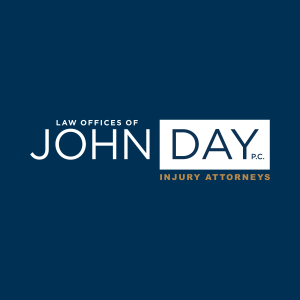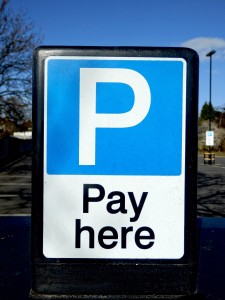At this time of year, especially with a shortened season between Thanksgiving and Christmas, it is easy to feel overwhelmed. Shopping, wrapping, addressing, baking and all the other things that need to be squeezed into our already busy schedules can become stressful. But it is important to take a step back, take a deep breath and realize that this type of overwhelmed is rooted in something joyful. We buy the presents, send the cards, bake the cookies, etc. because it is part of a season of joy and festivities. But, there is another type of overwhelmed. Continue reading
Articles Posted in Damages in Death Cases
Accountability v. Responsibility
In a recent blog post, Seth Godin wrote: “Accountability is done to you by the industrial system, by those that want to create blame. Responsibility is done by you. It’s voluntary. You can take as much of it as you want.” Seth Godin is a marketing guru and I enjoy his blog. As it relates to the legal field and the work of the lawyers at the Law Offices of John Day, I would change this post slightly: Accountability is done to you; when you do not take responsibility. Here is why I say that. Continue reading
We Hate To Disappoint People, But We Do. Everyday.
At The Law Offices of John Day, P.C., we have two intake specialists, Penny Whitaker and Lauren Bates. When people call into the offices for a free consultation, Lauren and Penny take the basic accident information for a free review by one of our award-winning attorneys. Let me say, Penny and Lauren do a great job; they understand that when people call our office they are often confused about their rights and options, scared about what the future may bring and looking for help. And, we desperately want to help. But all too often, we can’t and that is where the disappointment comes in. This is never truer than when someone did do something wrong and injuries or death resulted. Let me explain. Continue reading
If These 2 Facts Don’t Make You Buy Uninsured Motorist Coverage, Nothing Will
Tennessee is one of the top five states for uninsured motorists. Roughly 20% of the vehicles on our roads are not covered by insurance. Second, 46.8% of all ride-share drivers do not have ride-share insurance. So why are these two facts so scary? Continue reading
Hit and Run Accidents: Do You Know What To Do?
According to a recent report in The Tennessean, Franklin police need help locating a driver who caused a deadly motorcycle accident last week on McEwen drive. According to witnesses, an unidentified Nolensville woman, age 50, changed lanes and knocked the motorcycle into a curb. The motorcyclist, who was thrown from his bike, was severely injured and later died at the scene. If you or a family member was involved in an accident with an unidentified driver who does not stop, you can still recover money for your losses if you have the right insurance and know what to do. Continue reading
Protect Yourself: Driving Fatalities at their Highest Since 2007
Last year, 40,200 people lost their lives in car accidents. Think about that. 40,200 lives cut short. 40,200 funerals. 40,200 families mourning the loss of a loved one. For more perspective on that, the Chicago White Sox stadium holds 40,615 people, so we lost almost a stadium full of people to car accidents last year. The death toll represents a 6% increase over 2015 and a 14% increase over 2014. Experts attribute the rise in deaths to a number of factors and, of course, have offered suggestions to protect yourself. Continue reading
Chattanooga School Bus Wreck Tragically Highlights Immunity Issue
We wrote just a few days ago about the bus crash in Nashville involving a school bus in Chester County. That school bus wreck was bad enough, but today’s school bus accident in Chattanooga is even more tragic.
Apparently, a school bus filled with 35 children crashed into a tree. It has been reported that six children have died in the crash off Talley Road in Hamilton County and many others have been injured, some in critical condition. The students attended Woodmore Elementary School.
No information about the cause of the crash is currently publicly available, although speed is being investigated as a factor. Reportedly the school bus driver is cooperating with authorities. UPDATE: CNN reports that the bus driver, Johnthony Walker, 24, has been charged with five counts of vehicular homicide, reckless endangerment and reckless driving and that the National Transportation Safety Board will be investigating on Tuesday November 22. Continue reading
What Hillary Clinton’s Pneumonia Teaches Us
Now wait just a minute, I am not going to talk politics. I am going to talk about disclosure and hindsight. Whatever your opinion on Hillary Clinton, most people think it was a mistake for her not to have disclosed that she was suffering with pneumonia. Day in and day out, we counsel our clients on disclosure and here are some thoughts on the issue:
- What you think is important is not what everyone else thinks is important. HRC said she did not disclose the pneumonia because she did not think it was a big deal. But, she is not the decider of what is a big deal in an election. That is the voters’ job. The same is true of litigation: the ultimate decider is the jury. So we tell our clients that everything needs to be viewed through the eyes of jurors.
- Non-disclosure almost always does more harm than disclosure. Because some hubbub had already been made about her health, HRC probably thought it would be better keep her pneumonia diagnosis to herself and her camp, take some antibiotics, solider on and avoid providing any fodder to Trump, the media, etc. This is not an unreasonable position on its face. The problem comes when the information comes out anyway. With HRC, her stumble or collapse (depending upon your political affiliation) outed her illness. As a result, the focus is now two-fold: her health and her transparency. The same is true in injury litigation. Let’s say you have a prior back injury that you think is unrelated to the current back injury you received in a recent tractor-trailer accident and so you decide not to tell your lawyer or the other side about it when they ask you under oath. Let me be clear: this is a horrible plan. The other side is going to have full access to your medical and pharmacy records and the power of a subpoena. Defense lawyers get paid a lot of money by the hour to find things that hurt your case. A good defense lawyer will leave no stone unturned and when they find it you, just like HRC, will have two problems: the old injury is now known and your non-disclosure has now also created a credibility or transparency issue for the jury. Recall point 1; the jury gets to decide what is important and if you win.
Subrogation: The Injury Victim’s Boogie Man
First, allow me to use an example to explain subrogation: You are hurt in an accident. You go to the emergency room, are admitted to the hospital for several weeks and then have a few months of follow-up appointments and physical therapy. After deductibles and co-pays, your health insurance company pays all of your medical bills. After you recover from the accident, you settle your injury case with the at-fault party’s insurance company. Using the money you got from your settlement, you buy your first home. Several months later, you get a letter from your medical insurance carrier demanding to be paid back for the medical bills they paid on your behalf after the accident. You no longer have the cash because you bought a home, but they are threatening to sue you.
Can they do that? What about if you are on Medicare or Tenncare? Isn’t that why you paid the premiums for your medical insurance? If they sue me, could they take my house or garnish my wages? What if I never tell them about my accident? Continue reading
Tennessee Trial Stats: How Many Injury and Death Cases Were Filed, Who Won and How Much Did They Get?
According to the Administrative Office of the Courts data, for the 2013-2014 reporting year, there were 10,232 tort cases filed in the State of Tennessee. (Tort cases are claims for injury or death and include medical malpractice or healthcare liability claims.) During that same time frame, 10,322 cases were concluded in some fashion such as dismissal, settlement or trial. However, very few were concluded by way of a trial. In fact, only 416 cases or 4% of tort or healthcare liability cases were tried in the entire State of Tennessee last year. So what kind of verdicts were returned in these 416 cases? Continue reading
 Tennessee Injury Law Center
Tennessee Injury Law Center









